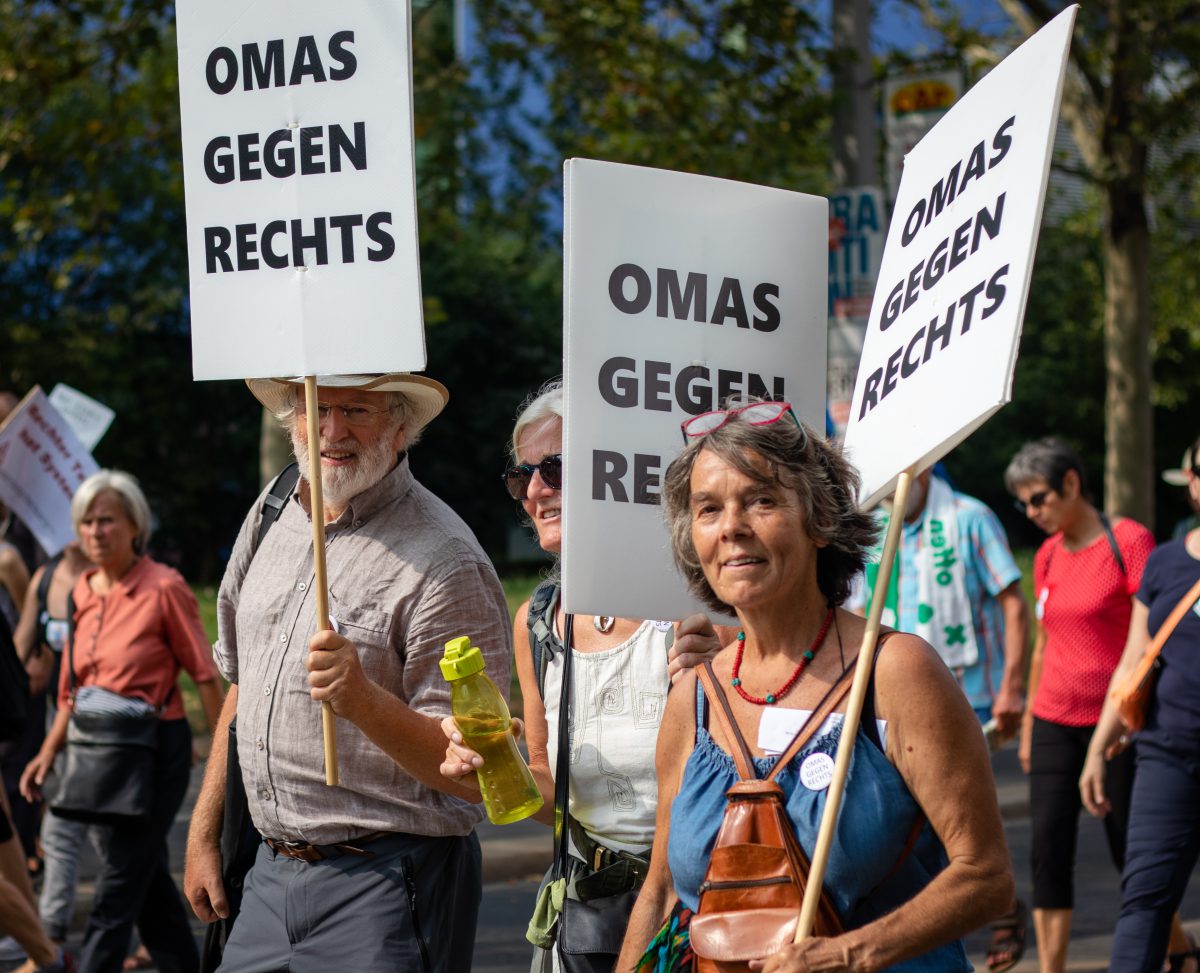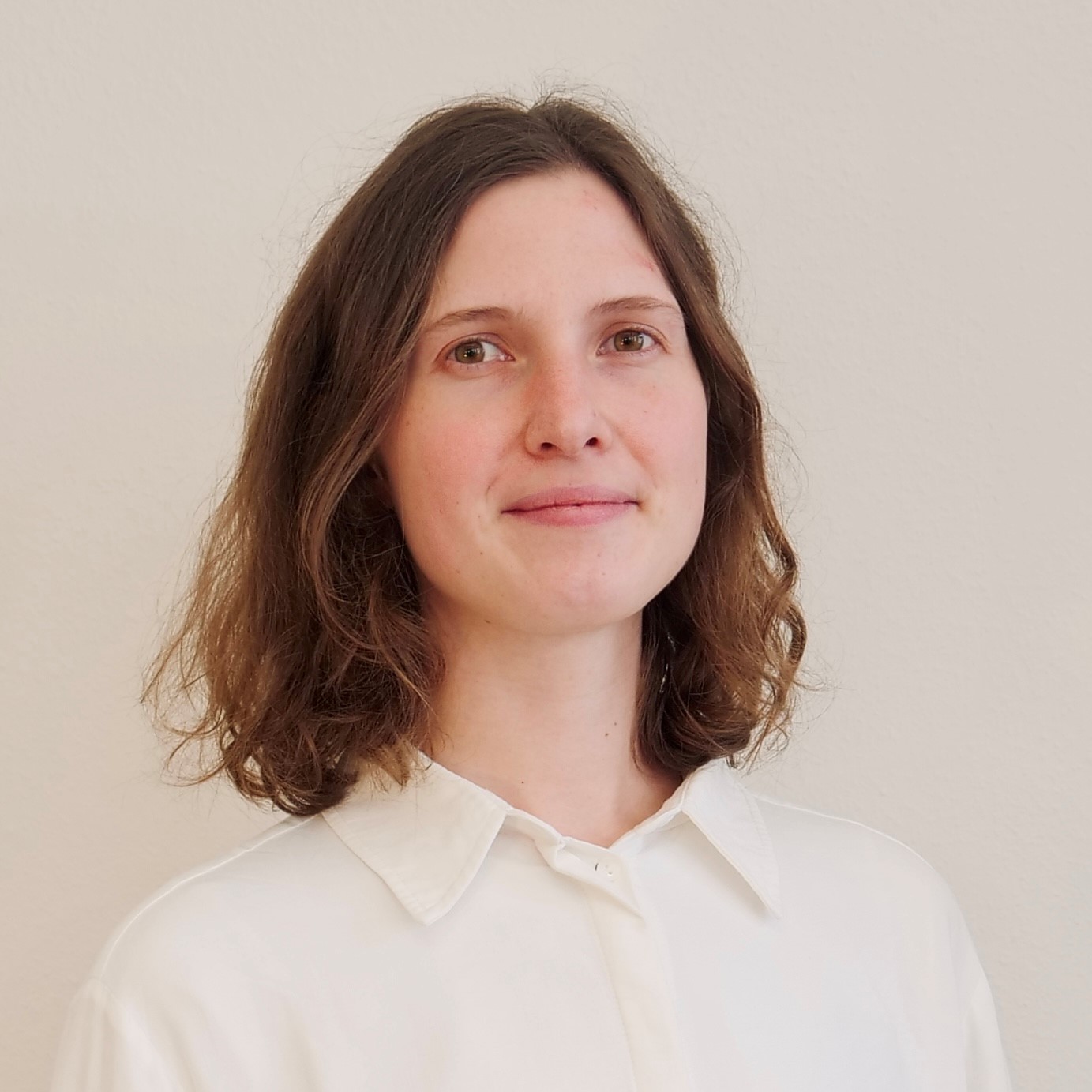Collective action research often centres around adolescents and younger adults while the focus on older people’s activism remains scarce (Schwarz, 2022). However, there are many movements that have been sprouting in various countries within and outside Europe “questioning the supposed passiveness associated with older people” (Blanche-T. & Fernández-Ardèvol, 2022, p. 10). What they have in common is that they are organized around a generational identity which becomes apparent in the names of their movement: “Iai@flautas” (iai@, Catalan term for grandparent), “Grannies Against the Right” (Austria, Germany, Italy, Switzerland), “Raging Grannies” (USA) or “Polish Grannies” (Poland). However, it is not used to fight for their specific generational causes, but it rather creates a “concomitant “family narrative” of generativity, that is, of caring for the younger generations” (Schwarz, 2022, p. 102). In this intergenerational solidarity, they are able to pass on their experiences with democracy which also becomes evident in the following interview with a grandma against the right activist. Tellingly, there are some parallels among these movements although they have risen on different grounds, in different places, at different times.
Grandmas against the Right is a civil society, non-partisan association initially founded in Austria in 2017 in response to a shift to the right following the election of Chancellor Sebastian Kurz and the right-wing populist Freedom Party. Later, similar groups have emerged in Germany, Italy and Switzerland. In this interview, I talk to an activist from the German “Grannies Against the Right” who has decided to remain politically active after her retirement. With many years of experience in political youth work, she has founded a new local group together with a friend. In this interview, she shares her motivations and challenges of her engagement and her wishes for the future of the initiative. She emphasizes the importance of taking action against right-wing tendencies, even in retirement, and describes how the group aims to have an impact not only in its immediate surroundings, but also across cultural and social groups, through courageous and unconventional approaches.
How did you get involved with Grannies Against the Right?
After I retired, I looked for opportunities to get involved as I did not have the time when I was working at the school. What I did there was exhausting enough and also very time-consuming. My experiences in youth education work and my political involvement during my student days motivated me to remain active in retirement. I first came into contact with politics as a student through the student union executive committee, the student council and all the demonstrations that took place there. That was a formative time for me in terms of my attitude and values. Among other things, I became aware of the “Omas gegen Rechts” (grannies against the right) through the newspaper. I was very taken with the idea that the “Omas gegen Rechts” are clearly against the right but are not affiliated with any political party. I found it very appealing that there should be such a broad cross-section of different political views. Together with a long-time friend, we founded our own group in our hometown after taking part in another local group. That was very exciting and was not that long ago. In the meantime, a group of 20 members has come together.
How is your local group composed?
Some of us already knew each other, as the first group meeting consisted mainly of women we had spoken to personally – friends, colleagues or acquaintances. As we also announced it in the local newspaper, some came who were not directly from our professional field, but whom we knew from the local area or through previous initiatives. With every announcement in the press and our presence at events, the group continued to grow, so that we have now expanded beyond the circle of close friends and became more diverse. This diversity naturally entails different biographical backgrounds, which we see as an enrichment. While it can be more familiar and informal in a group with similar life stories, it is also more restrictive. Discussions are often more or less rehearsed. On the other hand, it becomes more diverse when women join who have previously done something completely different, and we would like that too. We would like to reach even more women from different social and cultural groups.
Do you also get in touch with other generations?
Before the European elections, for example, we held conversations at train stations and bus stops, before or after school with adolescents. We tried to engage with the adolescents in conversations about the elections and passed on a pamphlet if we felt that the conversation was leading to something. The experience was positive: we were not treated unkindly, which created a good basis for exchange. One person even said she would pass on the letter to his class. We want to continue this experience, especially at secondary schools, where we thought about conducting workshops. Our aim is to talk about democratic values and share experiences in a friendly atmosphere, without lecturing or giving guidelines. We want to raise awareness and emphasize the importance of democracy without excluding justified criticism of social realities. We ourselves also have this criticism of social realities and politics. It is not the case that we agree with everything that happens, even if it is decided and implemented by democratic parties. It is important that we are transparent about that in the school context. We are not yet sure how we will contact schools, whether we will use exhibitions as an opportunity for discussion or find a cooperation with already existing initiatives. In other places, there are already collaborations with elementary schools and daycare centres, engaging with books about diversity and tolerance. In addition to schools, we would also like to be present at demonstrations and events in the city and work together with other initiatives, for example on specific days of remembrance. Our contacts from our professional background offer many opportunities to get involved here.
How are you perceived from the outside?
We do not have that much experience in the group yet, but the response at previous events has been very positive and we were able to attract new people interested in our next group meeting. Of course, we sometimes come across people who have completely different opinions, especially those who hold conspiracy ideas. In such cases, it is difficult to be perceived positively. Nevertheless, we have learned how to start a conversation in such cases. It is not necessarily about changing someone’s opinion but fostering an exchange that moves away from an aggressive tone and makes it possible to talk about backgrounds and motives. At the same time, we have also received a lot of encouragement. Many people tell us that they think what we do is important, even if they do not want to participate themselves. Also, the municipality supports our initiative and actively approaches us to cooperate with us.
What does this engagement mean to you personally?
It is definitely a good feeling not to stand idly by and watch the reports on TV or in the media and think, “this is getting worse and worse.” In the past, people might have thought that the AfD (“Alternative for Germany”) would disappear at some point. But that has changed, and the party is very persistent. I also find it a bit difficult that the focus is often placed on the East, while similar problems also exist here in the West. However, we actually have a more comfortable situation in western Germany, as we can fall back on existing contacts and initiatives that defend democratic values in a similar way to us. In East Germany, the commitment is often more dangerous, as right-wing activities have become more established there, as other granny groups report. Especially in the run-up to the state elections, there is therefore a desire for support in the region. The whole thing has also changed my attitude. I have always believed that greater vigilance in the 1930s could have helped prevent the rise of fascism. Today I see the system, the connections and the power behind it and understand how challenging it is to counteract it. That is why I think we all need to take action.
What do you wish for the future of Grannies Against the Right?
I would like our group to be braver and dare to surprise people with a cheeky and colourful appearance. At the moment, we are still a fairly serious group, but I think it would be important to be unexpected and perhaps even a little crazy – something that is not normally expected of grannies. This approach has also often been successful in my work at school because it makes people think and shakes up their expectations. I hope that we in our group will find the courage to present ourselves to the public in a planned but surprisingly creative way.
I also hope that we can reach out to refugees and migrants and integrate them into our group in order to become more culturally diverse. This is the only way we can reach out to other population groups and spread our messages, initiatives and activities more widely in society.
Sources
Blanche-T., D., & Fernández-Ardèvol, M. (2022). (Non-)Politicized Ageism: Exploring the Multiple Identities of Older Activists. Societies, 12(2), 40. https://doi.org/10.3390/soc12020040
Schwarz, C. H. (2022). Collective memory and intergenerational transmission in social movements: The “grandparents’ movement” iaioflautas , the indignados protests, and the Spanish transition. Memory Studies, 15(1), 102–119. https://doi.org/10.1177/1750698019856058


